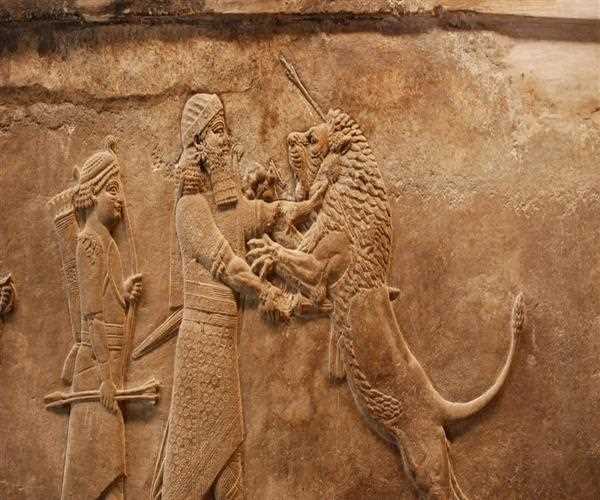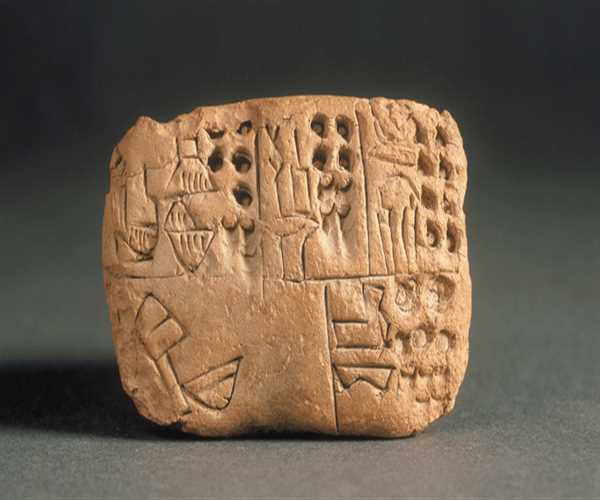
05-Jul-2023 , Updated on 7/5/2023 7:20:57 AM
Mesopotamia, Introduction to an Ancient Civilization
Highlights
- Mesopotamia was an ancient civilization located in the region between the Tigris and Euphrates rivers, which is modern-day Iraq and parts of Syria, Turkey, and Iran.
- It is often referred to as the "cradle of civilization" because it is one of the earliest known civilizations in human history.
Mesopotamia is credited with significant cultural, political, and technological advancements that laid the foundation for future civilizations.
- The Sumerians were one of the earliest civilizations to emerge in Mesopotamia around 4000 BCE. They established city-states with advanced irrigation systems and developed the world's first known writing system, known as cuneiform.
- Other notable civilizations in Mesopotamia include the Akkadians, Babylonians, and Assyrians, who each made their mark on the region's history through conquests, empires, and cultural achievements.
- Mesopotamian societies were organized into city-states with kings as political and religious leaders. They built monumental structures such as ziggurats (stepped temples) and developed complex legal systems.

Mesopotamia, often referred to as the "Cradle of Civilization," was one of the earliest and most influential civilizations in human history. Situated in the fertile valleys between the Tigris and Euphrates rivers, this region, encompassing modern-day Iraq, parts of Syria, Turkey, and Iran, saw the rise and fall of numerous ancient societies that left an indelible mark on human civilization.
Let's delve into the rich history, remarkable achievements, and enduring legacy of the Mesopotamian civilization.
Geographic and Historical Context
Mesopotamia, meaning "the land between the rivers" in Greek, owes its significance to the unique geographical features that shaped its civilization. The Tigris and Euphrates rivers provided a regular water supply and fertile soil for agriculture, making it an ideal location for human settlement. The region witnessed the emergence of various city-states, such as Sumer, Akkad, Babylon, and Assyria, each contributing to the rich tapestry of Mesopotamian history.
Sumer- Birthplace of Civilization
The Sumerians, who inhabited southern Mesopotamia around 4000 BCE, laid the foundation for Mesopotamian civilization. They developed the world's first known writing system, cuneiform, to record economic transactions, laws, literature, and religious beliefs. Sumerians also made significant strides in various fields, including mathematics, astronomy, architecture, and irrigation systems. Notably, they constructed impressive ziggurats, massive stepped temple towers that served as spiritual and administrative centers.
Akkadian Empire- Cultural Synthesis
Around 2334 BCE, the Akkadians, led by their powerful ruler Sargon, conquered Sumer and established the first empire in world history. This marked a period of cultural synthesis as Akkadian and Sumerian traditions merged, creating a vibrant and diverse civilization. The Akkadians further expanded the use of cuneiform and established Akkadian as the lingua franca of the region.
Babylonian Empire- Law and Astronomy
The Babylonians, known for their Hammurabi Code, which dates back to 1754 BCE, established one of the most famous empires in Mesopotamia. Hammurabi's code was one of the earliest known legal codes and influenced legal systems throughout history. Babylonians also excelled in astronomy, accurately observing celestial bodies and developing a sophisticated calendar system.
Assyrian Empire- Military Might and Cultural Preservation
The Assyrians, renowned for their military prowess, established a vast empire that stretched from Mesopotamia to Egypt and Anatolia. They were adept in siege warfare and built a formidable army. However, the Assyrians also displayed a keen interest in cultural preservation, amassing an extensive library in their capital, Nineveh. The library housed thousands of clay tablets with works of literature, science, and history, offering valuable insights into Mesopotamian culture.
Contributions to Civilization
The Mesopotamians made significant contributions that continue to shape human civilization. In addition to developing writing systems and legal codes, they created the earliest known forms of literature, including the epic of Gilgamesh, a tale that explores themes of mortality and the search for immortality. They also made advances in mathematics, using a sexagesimal numeral system (base 60) and contributing to the development of algebra and geometry.
Furthermore, Mesopotamians were adept architects, constructing monumental structures, palaces, and city walls. They developed complex irrigation systems to harness the power of the rivers and maximize agricultural productivity. Their architectural innovations, such as arches and vaults, influenced subsequent civilizations and became fundamental elements in the construction of grand structures in the future.
In the field of science, Mesopotamians made noteworthy advancements in astronomy. They mapped the movements of celestial bodies and developed a calendar system based on lunar cycles. Their observations and calculations laid the groundwork for later astronomical studies by the Greeks and other civilizations.
Trade was a vital aspect of Mesopotamian society. The region's strategic location allowed for extensive commerce, connecting Mesopotamia to distant lands such as Egypt and the Indus Valley. This exchange of goods and ideas fostered cultural diffusion and contributed to the growth and prosperity of the civilization.
Religion played a central role in the lives of the Mesopotamians. They worshipped a pantheon of gods and goddesses, each associated with various aspects of life and natural phenomena. Temples were constructed as sacred spaces, and religious rituals and ceremonies were performed to ensure the gods' favor and maintain cosmic order.
Despite its remarkable achievements, the Mesopotamian civilization faced numerous challenges throughout its history. The region was vulnerable to invasions, leading to the rise and fall of different empires. In particular, the Assyrians and Babylonians experienced cycles of dominance and decline as rival powers sought control over the fertile lands of Mesopotamia.
Legacy and Influence
The influence of Mesopotamia on subsequent civilizations cannot be overstated. Many of its cultural, legal, and scientific contributions were adopted and adapted by neighboring regions and future empires. For instance, the Babylonian numerical system, based on the number 60, influenced the development of the modern system of time measurement (60 seconds in a minute, 60 minutes in an hour). The concept of a legal code with written laws, as seen in the Hammurabi Code, served as a foundation for legal systems around the world.
Mesopotamia, the cradle of civilization, gave rise to an extraordinary ancient civilization that left an enduring legacy. The Sumerians, Akkadians, Babylonians, and Assyrians each contributed to the rich tapestry of Mesopotamian history, showcasing remarkable achievements in various fields such as writing, law, astronomy, architecture, and mathematics. Their contributions continue to influence and shape human civilization, and their cultural and intellectual heritage is a testament to the ingenuity and creativity of the ancient Mesopotamian people. Studying this ancient civilization allows us to appreciate the foundations upon which modern society stands and to gain a deeper understanding of our shared human history.

Student
Economics can be broken down into microeconomics, which looks at individual decisions, and macroeconomics, which is concerned with the economy as a whole. Both types of economics utilize historical trends and current conditions to inform business decision-making and make predictions about how markets might behave in the future. Students who choose to study economics not only gain the skills needed to understand complex markets but come away with strong analytical and problem-solving skills.
Join Our Newsletter
Subscribe to our newsletter to receive emails about new views posts, releases and updates.
Copyright 2010 - 2026 MindStick Software Pvt. Ltd. All Rights Reserved Privacy Policy | Terms & Conditions | Cookie Policy